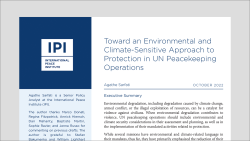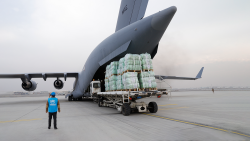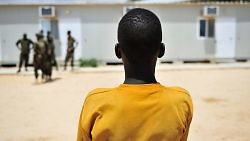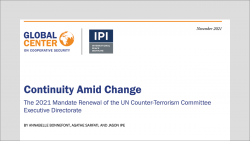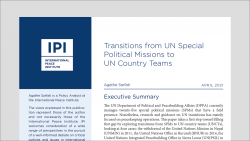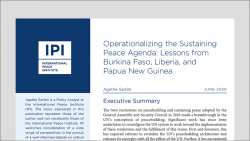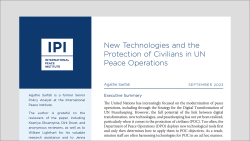
The United Nations has increasingly focused on the modernization of peace operations, including through the Strategy for the Digital Transformation of UN Peacekeeping. However, the full potential of the link between digital transformation, new technologies, and peacekeeping has not yet been realized, particularly when it comes to the protection of civilians (POC). Too often, the […]
Read more

